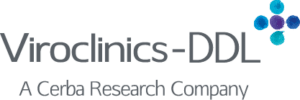Bioinformatics
Delivering timely, high-quality data in the appropriate formats is crucial to the success of clinical trials. Cerba Research has developed specialized pipelines specifically for the analysis of NGS data. Our pipelines are designed to provide results and reports that fully adhere to GxP and FDA standards. Moreover, we offer the flexibility to customize our existing pipelines or develop tailor-made solutions to meet the needs of our clients.

Our team of bioinformaticians is proficient in handling various data sources, including data from Illumina, Nanopore, PacBio, and Nanostring platforms, and is always eager to expand their knowledge with new data.
Our services encompass quality control, sample genotyping, variant calling at both the nucleotide and amino acid levels, reference conversion, and customized file format outputs. With most of the time-demanding bottlenecks resolved with our cloud implementation, our commitment to efficiency ensures competitive turnaround times and scalability for the future.
Furthermore, our team maintains close collaboration with the lab specialists and scientists to ensure the precision and reliability of the software, tools, and pipelines in relation to the data they analyze.
Virology Data Pipeline
We offer customized pipelines in virology and bacteriology, reference conversion options and tailor-made analysis of clinical trial data. 275 projects run in the virology pipeline, 45.5k samples analyzed and 13 Species, including: HCMV, WHV, HBV, HIV-1, POV, SARS-CoV-2, IAV, HRSV, hMPV, HCV, DENV, E-Coli, HDV
PDF report per sample
Custom pipeline development
Based on your requirements we can develop a custom pipeline for you
Every project has a dedicated project manager who ensures scope, planning and delivery of your pipeline.
Together with your own scientists we design the pipeline to fit your needs. This is where our teams come in to assist you on the scope of the project and the specific needs for your type of analyses.
GxP & FDA
All our pipelines are fully compliant to GxP requirements and are built following the guidelines of the FDA.
Data management
We have a dedicated data management department who can help you in setting up data transfer formats following CDISC standards and setup the output of the data in a compliant format.

Reach out to our experts and see how we can help advance your clinical trial
Contact Us

